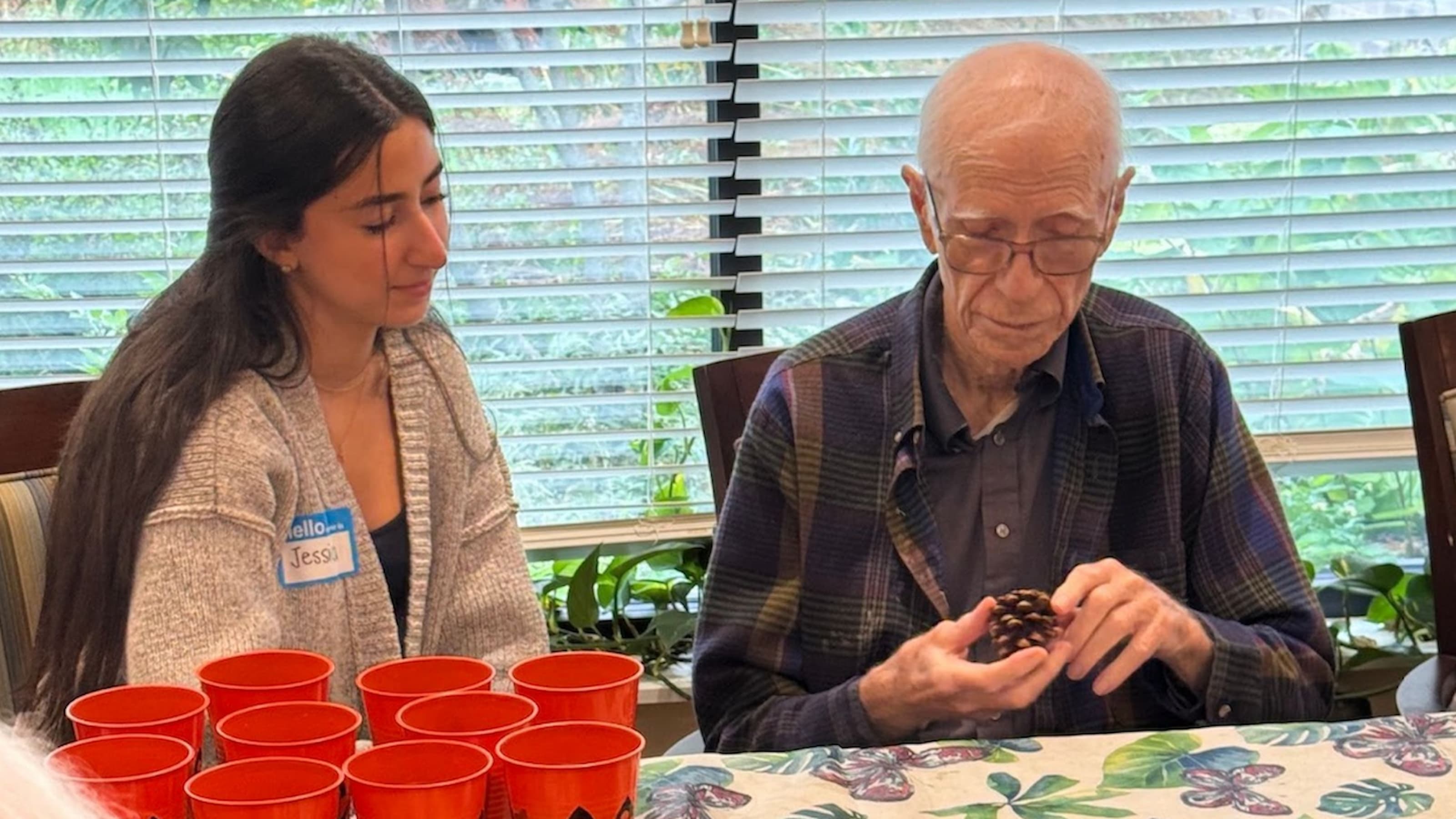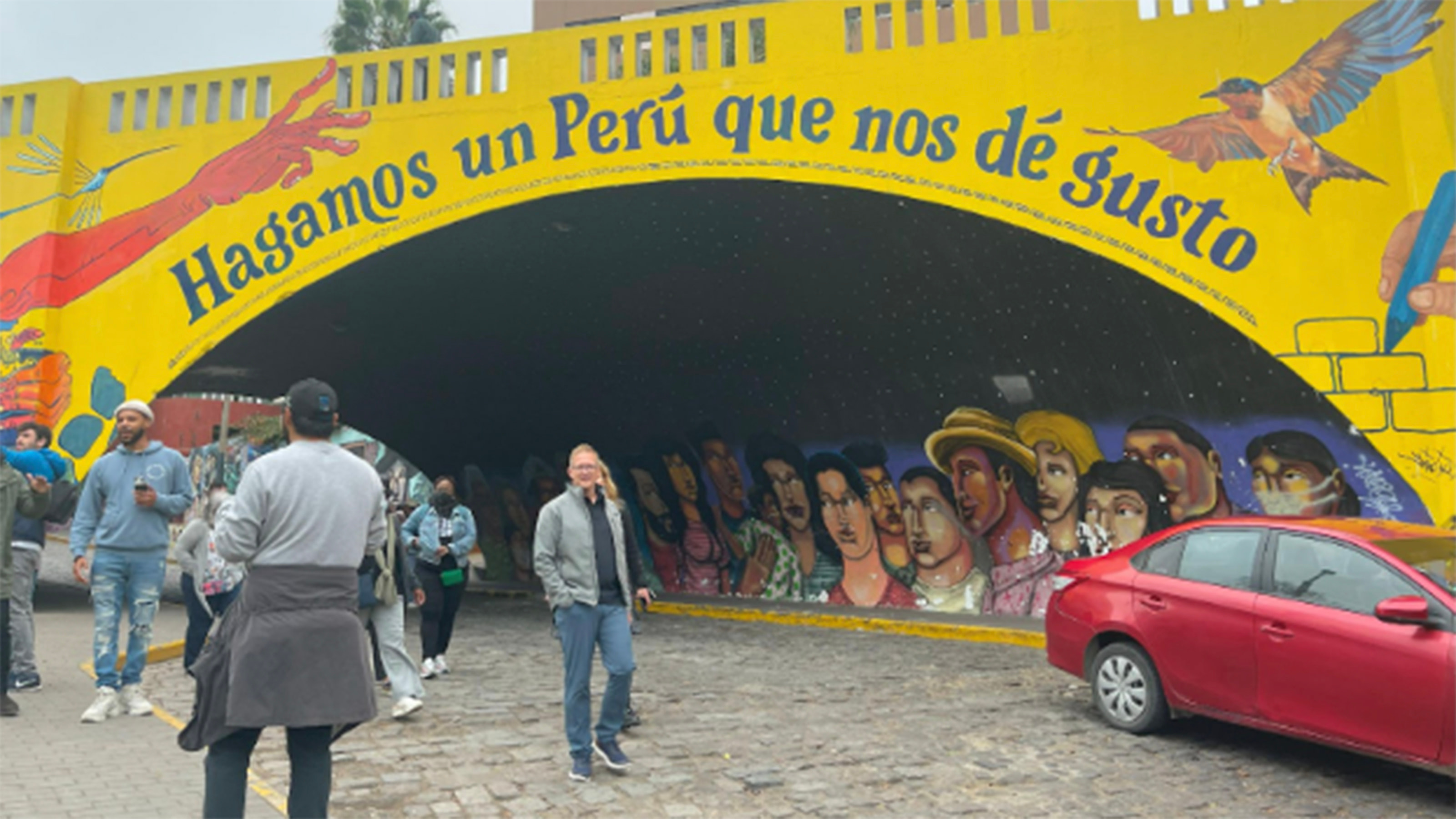Finance Students Beat the S&P While Managing Alumni-Backed Investment Fund
Graduate finance students got real-world experience with managing an active fund thanks to a gift from alumnus Vince Lowry ’79.

- Alumnus Vince Lowry ’79 donated $100,000 for an investment fund to give real-world experience to students.
- Finance master’s degree students in the Haub School of Business managed the fund during the spring semester, and beat the S&P 500 by more than 17%.
- The students took a cautious approach, which resulted in not losing any money when the market took a downturn due to the COVID-19 pandemic.
“I went to Saint Joseph’s for night school back in the 1970s and I consider that to be the launching pad for my career,” says Lowry. “I wanted to find a meaningful way to give back to Haub. I think the world is rooted in commerce, and I hoped that this would give students the opportunity to experience that first-hand.”
Matt Kelly, visiting instructor of finance and director of the Wall Street Trading Room, oversaw the students’ fund management, offering his advice and expertise along the way. However, he credits the fund’s success to the students’ conservative investment strategy, as well as how they kept the ball rolling during the onset of the COVID-19 pandemic.
“When the class was first looking at where and how they wanted to invest the fund’s assets, they took a step back and evaluated all of the options on the table, just as they would if they were managing their own money,” says Kelly. “They knew that they didn't want to jump right into investing immediately, as they weren’t confident in the market. In the end, their caution was spot-on.”
Real-World Finance Experience
As the pandemic began to impact the world’s economy, the class was still weighing its investment options. Because of this, the fund didn’t lose any money on the market’s downturn, Kelly explains.
“It was something of a waiting game, because they — like the rest of the world — weren’t sure just how bad things were going to get,” says Kelly. “They ended up allocating the fund’s assets as the market began to bottom out, allowing them to protect the fund. They then changed to a roughly 70/30 split strategy, with 70% of funds invested in equity and the other 30% being used as a buffer of sorts to protect the fund.”
I think the world is rooted in commerce, and I hoped that this would give students the opportunity to experience that first-hand.”
Vince Lowry '79
Lowry kept an eye on the class’s progress throughout the semester. In the end, he believes that they did “astoundingly well,” citing their positive return in a period of time where anything that could have gone wrong in the market did.
“I’d love to see that level of success continue with the fund into the future,” says Lowry. “I’m very proud of the students and of the school, and can’t wait to see what they can do in year two.”
For finance master’s degree student Alex Linkus ’15, ’20 (M.S.), taking part in the class provided an opportunity for experiential learning unlike any that he’d had before.
“Because we were investing with the funds from Mr. Lowry’s donation instead of using a simulator, we felt that responsibility to invest in a smart and strategic manner,” says Linkus.
Haub School Dean Joseph DiAngelo, Ed.D., ’70, says real-life experiential programs like managing the Lowry fund are key to the school’s academic programs.
“They allow our courses to ‘come alive’ and allow students to apply academic theories to real-life situations,” DiAngelo says. “We are grateful to Mr. Lowry for his generosity in providing an opportunity to enhance our graduate program.”



